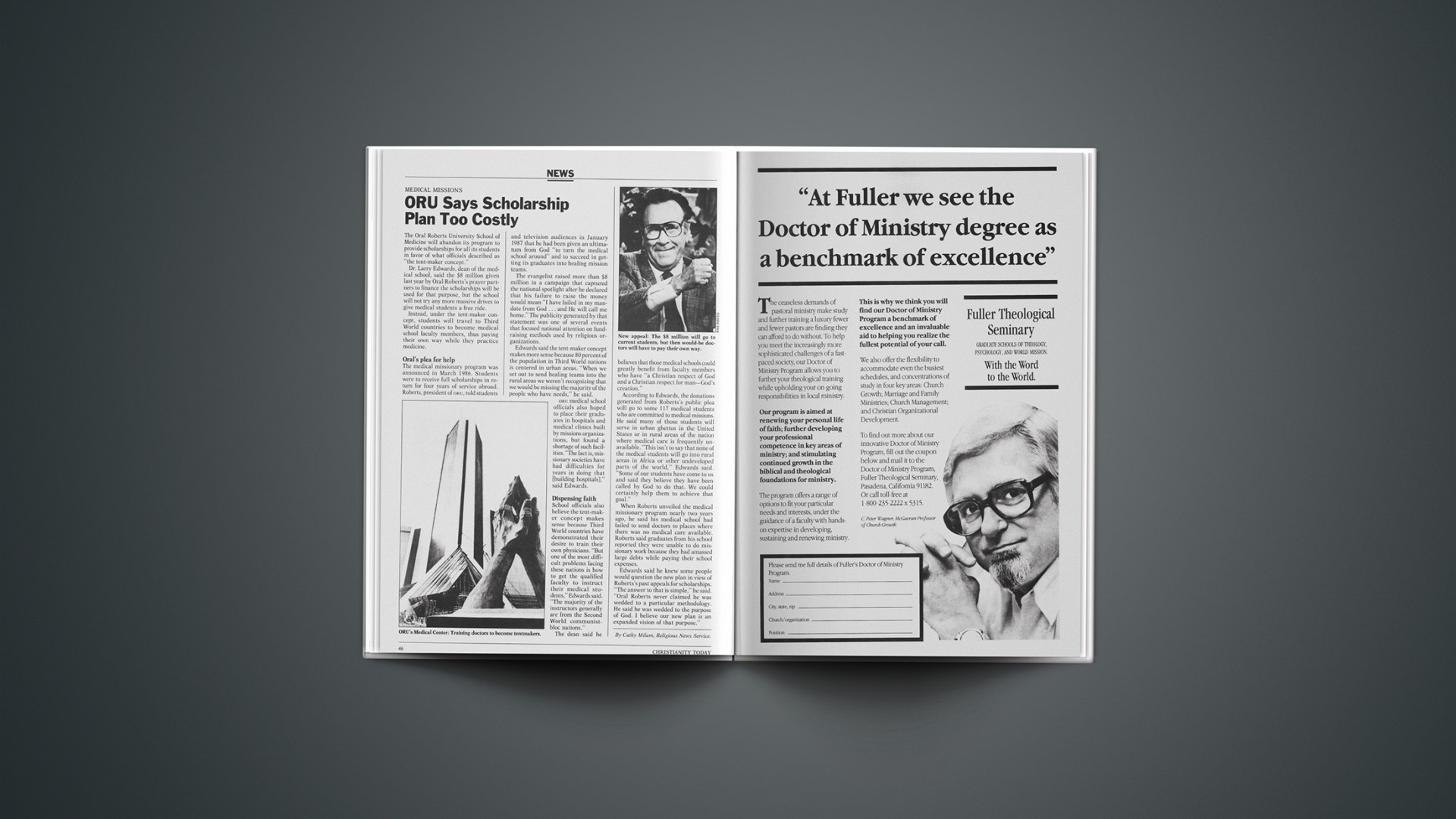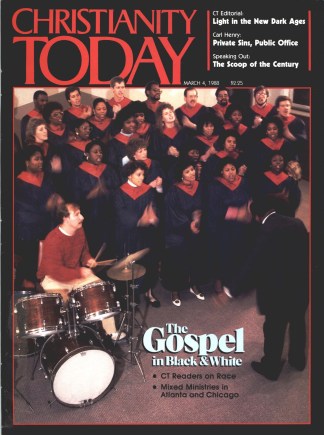The Oral Roberts University School of Medicine will abandon its program to provide scholarships for all its students in favor of what officials described as “the tent-maker concept.”
Dr. Larry Edwards, dean of the medical school, said the $8 million given last year by Oral Roberts’s prayer partners to finance the scholarships will be used for that purpose, but the school will not try any more massive drives to give medical students a free ride.
Instead, under the tent-maker concept, students will travel to Third World countries to become medical school faculty members, thus paying their own way while they practice medicine.
Oral’s Plea For Help
The medical missionary program was announced in March 1986. Students were to receive full scholarships in return for four years of service abroad. Roberts, president of ORU, told students and television audiences in January 1987 that he had been given an ultimatum from God “to turn the medical school around” and to succeed in getting its graduates into healing mission teams.
The evangelist raised more than $8 million in a campaign that captured the national spotlight after he declared that his failure to raise the money would mean “I have failed in my mandate from God … and He will call me home.” The publicity generated by that statement was one of several events that focused national attention on fund-raising methods used by religious organizations.
Edwards said the tent-maker concept makes more sense because 80 percent of the population in Third World nations is centered in urban areas. “When we set out to send healing teams into the rural areas we weren’t recognizing that we would be missing the majority of the people who have needs,” he said.
ORU medical school officials also hoped to place their graduates in hospitals and medical clinics built by missions organizations, but found a shortage of such facilities. “The fact is, missionary societies have had difficulties for years in doing that [building hospitals],” said Edwards.
Dispensing Faith
School officials also believe the tent-maker concept makes sense because Third World countries have demonstrated their desire to train their own physicians. “But one of the most difficult problems facing these nations is how to get the qualified faculty to instruct their medical students,” Edwards said. “The majority of the instructors generally are from the Second World communist-bloc nations.”
The dean said he believes that those medical schools could greatly benefit from faculty members who have “a Christian respect of God and a Christian respect for man—God’s creation.”
According to Edwards, the donations generated from Roberts’s public plea will go to some 117 medical students who are committed to medical missions. He said many of those students will serve in urban ghettos in the United States or in rural areas of the nation where medical care is frequently unavailable. “This isn’t to say that none of the medical students will go into rural areas in Africa or other undeveloped parts of the world,” Edwards said. “Some of our students have come to us and said they believe they have been called by God to do that. We could certainly help them to achieve that goal.”
When Roberts unveiled the medical missionary program nearly two years ago, he said his medical school had failed to send doctors to places where there was no medical care available. Roberts said graduates from his school reported they were unable to do missionary work because they had amassed large debts while paying their school expenses.
Edwards said he knew some people would question the new plan in view of Roberts’s past appeals for scholarships. “The answer to that is simple,” he said. “Oral Roberts never claimed he was wedded to a particular methodology. He said he was wedded to the purpose of God. I believe our new plan is an expanded vision of that purpose.”
By Cathy Milam, Religious News Service.










